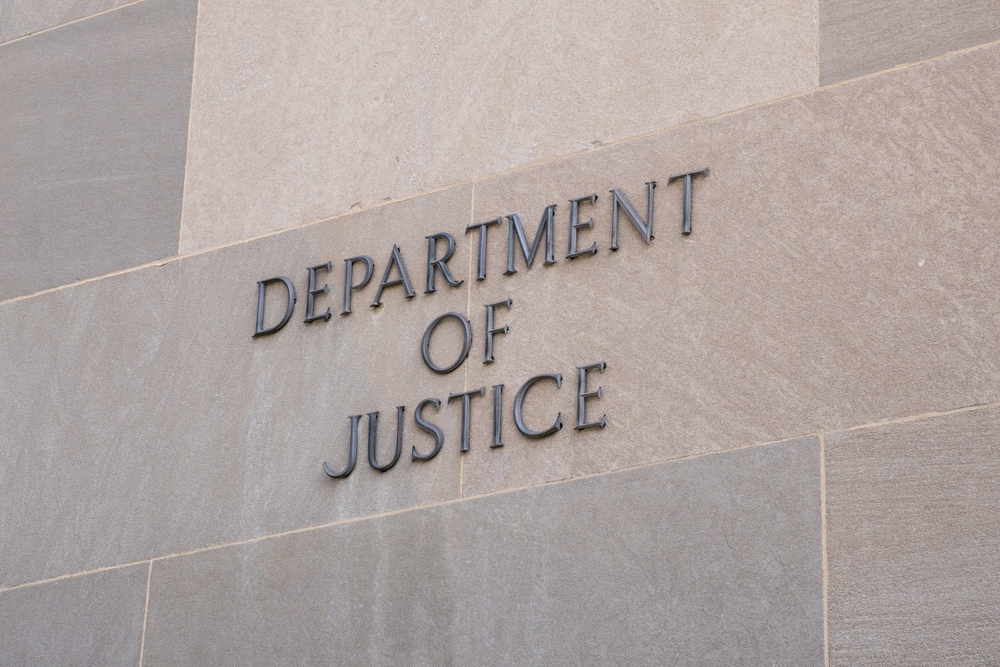Ross Parker was chief of the criminal division in the U.S. Attorney’s Office in Detroit for 8 years and worked as an Assistant U.S. Attorney for 28 in that office. He is the author of the book “Carving Out the Rule of Law: The History of the United States Attorney’s Office in Eastern Michigan 1815–2008″.

Are we the most violent, the most criminal country on the globe?
As someone who was a career federal prosecutor and reveres the criminal justice system, the question seems almost insulting. Do we not have one of the most finely nuanced systems when it comes to protecting human rights while protecting the public from criminals? Many would say Yes.
And yet we, who make up only 5% of the world’s population, have 25% of the world’s prison population, far outstripping countries like Iran, North Korea, and China. 7.3 million people in the U.S. are either in jail, on probation or in some form of supervised release.
One in every 31 can expect to enter the criminal justice system in this country, one in seven African American males.
During the last three decades, the response to the crime epidemic has been to tighten the screws ever tighter by increasing sentences and creating more laws mandating incarceration.
The result has been an increase in the nation’s prison population, which has climbed from about 500,000 in 1980 to almost 2.5 million.
Are we safer today than in 1978 when I prosecuted my first buy-bust cocaine case? Few would think so.
Moreover, sociologists claim that whatever stability there has been in the crime rate is due more to factors like the aging population than our get-tougher response.
Whatever the causes, prisons are overflowing and have become increasingly more dangerous places for corrections officers and inmates. During the same three decades corrections expenditures have ballooned from $8 billion to $70 billion annually. In the current depleted economic condition, states say that they can no longer afford these costs. Their economizing is affecting funding for law enforcement with layoffs and reduced financial support.
As this cause and effect debate rages on, there is a plan to examine the criminal justice system as a whole and suggest workable reforms.
U. S. Senator Jim Webb of Virginia last year proposed a bill to create a blue ribbon commission of experts from all fields to study the current problems and come up with solutions.
The bill, which has been reported favorably by the Senate Judiciary Committee, should come up for a vote this year. A companion bill has bipartisan backing in the House of Representatives. The proposal has the support of an array of organizations ranging from the ACLU to the Fraternal Order of Police.
The federal law enforcement community should not only support this bill but should lobby to actively participate in the commission, both directly as members and by providing data and perspective on subjects which will undoubtedly produce a lot of controversy.
Like legalization of marijuana, the Commission will probably study the need to look at a host of alternatives including non-incarceration sentences for some non-violent crimes and the elimination of mandatory minimum drug sentences, to name a few.
Some will think that such controversies should not be opened for debate. But, given the status quo, we cannot afford not to discuss some innovative policy choices, including ones which have been successful in other countries.
There are a number of areas which, in my opinion, deserve study and in which reform is sorely needed:
1. Prisoner Rehabilitation and Re-entry Programs – Two of every three released inmates will be re-arrested and half of them will go back to prison within three years of their release. This rate of recidivism threatens public safety. The current correctional systems have all they can handle, and more, to keep jails and prisons relatively safe. It benefits every citizen to provide programs in the prisons for training, education, and re-orientation to point inmates in a law abiding direction. After their release, support programs for their re-entry into society with legal opportunities and alternatives are needed. Mental health and drug addiction programs are especially important given the sizeable percentage of inmates who have needs in these areas.
2. Drug Enforcement Policy Reform – We have increased the incarceration of drug offenders many-fold in the last 30 years, according to some statistics more than ten times. This increase, for better or worse, is largely responsible for the significant prison population increase. And yet drug cartels and gangs flourish and drug-inspired property crimes abound. Changes in this area will, no doubt, generate fierce controversy, but reforms must be considered. Should sentences continue to be based primarily on drug amounts rather than culpability levels? Are mandatory minimum sentences necessary and effective? Should crack cocaine be equated with powder for sentencing purposes? Should possession and use of small amounts of marijuana be de-criminalized?
3. Law Enforcement Funding, Training – Many states have severely curtailed funding for salaries, training, and improved technology and equipment. No serious plan for reform can be successful without adequate support for its foot soldiers. The trend toward a more educated police force should be enhanced not reduced.
4. Standards and Compensation for Indigent Defense – The overwhelming majority of accused receive appointed counsel. In many states, such as my own, Michigan, the appointment process, qualification and performance standards, and compensation are both chaotic and contribute to the problem. The result is that many good defense lawyers refuse to represent indigent defendants. Although it may seem counter-intuitive, most prosecutors would prefer to deal with prepared and experienced counsel. The likelihood of a just and efficient result is enhanced by adequately compensated defense attorneys. The present situation encourages inaccurate results, unjust dispositions, and endless appeal and post-conviction litigation.
There are a host of other issues and problem areas which may, or may not, be appropriate for a big-picture commission. For example, how should we as a society respond to the growing realization that, even with a system that is 99% accurate, there are thousand of post-appeal inmates who actually did not commit the crime for which they are incarcerated? DNA testing has already exonerated more than 300 prisoners. Hundreds of Innocence Projects have proposed procedures and methods for considering claims of actual innocence. Law enforcement officials, both current and retired, have been active in this movement. This is just one of probably many other subjects which are worthy of study.
Congress should take advantage of the momentum for Senator Webb’s bill and pass this legislation. Whether an innovative blueprint by a Criminal Justice Reform Commission can survive state and federal legislative finger-pointing, inertia and election-motivated partisan politics, will be another, and more challenging, question.




